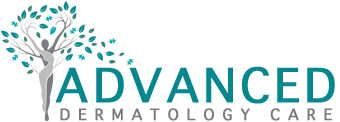Are you suffering from skin irritation, dryness, and itchiness? Have you ever heard about neurodermatitis, a chronic skin disorder that affects millions of people around the world? If this is something you’re experiencing, you might be curious to know more about this condition and how to deal with it effectively. In this blog post, we’ll discuss some essential information about neurodermatitis, including its symptoms, causes, triggers, and treatment options.
Symptoms
Neurodermatitis is a skin condition that causes thick, scaly, and itchy patches on the skin, commonly found on the neck, scalp, arms, and legs. The affected area might crust over, bleed, or become infected. Scratching these patches can lead to a vicious cycle of itching and scratching, causing the skin to thicken and become leathery. The intensity of the itch can vary from mild to severe, and it can interfere with your daily activities, work, and sleep.
Causes
The exact cause of neurodermatitis is unknown. However, it’s believed to be related to the immune system’s response to irritants or allergens, psychological stress, or nerve disorders. The condition often occurs along with other skin disorders, such as eczema, psoriasis, or rosacea. Genetics also play a role in the development of neurodermatitis, as people with a family history of allergies or skin diseases are at higher risk.
Triggers
Neurodermatitis can be triggered by various factors, such as stress, anxiety, weather changes, dry skin, and certain foods or medications. Scratching or rubbing the affected area can also trigger an itch-scratch cycle. Therefore, it’s essential to identify and avoid your triggers and to practice good skin care routines.
Treatment options
Neurodermatitis can be challenging to treat because of its chronic nature. However, it’s possible to manage its symptoms and prevent flare-ups with proper medical care and self-care practices. Your dermatologist might recommend topical or oral medications, such as corticosteroids, antihistamines, or calcineurin inhibitors, to reduce inflammation, itching, and infection. Additionally, you can try some natural remedies, such as oatmeal baths, moisturizing creams, and stress management techniques, to soothe your skin and promote relaxation.
Neurodermatitis is a common skin condition that affects many people worldwide. Although its causes are not clear, proper medical care and self-care practices can help control its symptoms and improve your quality of life. If you think you have neurodermatitis or other skin disorders, visit your dermatologist for proper diagnosis and treatment options. Remember to identify and avoid your triggers, practice good skin care routines, and stay hydrated and stress-free. A healthy and happy skin begins with self-care.

